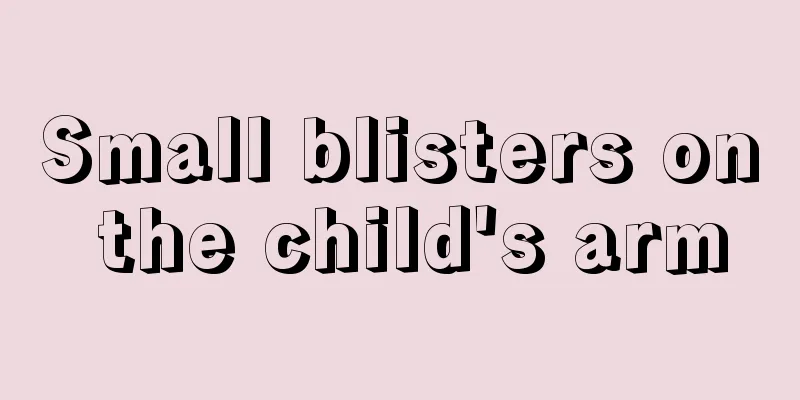How long does it take for a child's teeth to become loose and fall out?

|
Everyone knows that when a baby grows to a certain age, he or she will start to change their teeth. When changing their teeth, the deciduous teeth will become loose and fall out, and the new teeth will grow again from the fallen places. Most parents only know that loose teeth mean that the child is about to change their teeth, but they don’t know how long the loose teeth will take before the teeth fall out. The following specifically introduces how long it will take for a child’s teeth to become loose before they fall out. How long does it take for a child's loose teeth to fall out? Generally speaking, children's teeth will fall out naturally 5-7 days after they become loose three times. The age range from 4 to 12 is the period of tooth replacement, and it is normal at this age. Generally, let them grow naturally, unless two teeth grow together, then you should see a dentist. Precautions for children's tooth replacement 1. Always pay attention to the development of teeth Always pay attention to the growth of children's deciduous teeth and permanent teeth, and take children to see a dentist regularly so that problems can be discovered at any time and resolved early. 2. Develop a good habit of brushing your teeth Children should be urged to brush their teeth every day. It is best for adults to help brush their teeth before going to bed at night, especially the upper teeth which are more difficult to clean and are most likely to cause tooth decay. In addition to brushing teeth, it is best for children to rinse their mouths after each meal to maintain oral hygiene. 3. Eating hard food During the period of children's tooth replacement, they should eat more foods that are high in fiber and have a certain degree of hardness, such as fruits, carrots, beans, corn, etc., to maintain a good stimulation to the deciduous teeth and promote the shedding of deciduous teeth on time. On the other hand, it also helps to stimulate the facial and eye muscles through chewing movements, accelerate blood circulation, and promote the development of gums, jaws and facial bones, which is both healthy and beautiful. 4. Promote calcium absorption To enhance children's calcium absorption, encourage your baby to eat more foods high in calcium, such as milk, cheese, tofu, canned fish, etc. At the same time, they should take in enough vitamin C and D, because these two vitamins are helpful for calcium absorption. 5. Avoid breathing through your mouth Try to prevent children from breathing through their mouths while they sleep. This is because when air flows through the mouth, the upper palate is subjected to upward pressure and cannot develop downward normally, causing the upper palate to bulge upward, and the left and right sides of the upper dental arch to become narrower, with the front part protruding forward. As a result, the erupted incisors not only tilt forward, but also are misaligned, forming gaps in the teeth. 6. Correct bad habits It is necessary to correct some bad habits of children in time, such as sticking out the tongue, biting the tongue, biting fingers or pencils, licking teeth with the tongue, etc. These bad habits will affect the growth of children's teeth and cause tooth deformation. 7. Protect permanent molars Special protection should be given to the first permanent molar that grows out in children around the age of 6 - the sixth-year molar, because it has the function of positioning and determining the height of the teeth in the entire mouth, has a great impact on the development of the child's jaw and face, and also plays an important role in the eruption and arrangement of other permanent teeth. 8. Avoid accidental tooth loss Children should be given safety education regularly to try to prevent tooth loss due to trauma. |
<<: Children's allergic rhinitis medication
>>: Why do children often have headaches?
Recommend
Massage techniques for children with constipation
Children's digestive systems are not fully de...
Height at one year and seven months
Under normal circumstances, babies who are one ye...
Is it normal for babies to spit up?
During the growth of a newborn, careful mothers w...
What should I do if my child eats a magnet?
When children are young, they like to find all ki...
2-year-old baby's eyes are red and bloodshot
If there are bloodshot eyes in your baby, it is l...
What causes nose bleeding in children?
Nosebleeds are very common, especially in the dry...
How to pack children's chaos
Since children's intestines and mouths are re...
What should a four-year-old child eat when he has a cough?
Colds, coughs and fevers are diseases that are ve...
Symptoms and treatment of neonatal ADHD
Although neonatal ADHD is not a particularly seri...
Why do children get Kawasaki disease?
Many people may not have heard of Kawasaki diseas...
What is the height standard for a two and a half year old girl?
Under normal circumstances, children's physic...
Do I need blue light for jaundice 17?
If jaundice 17 is found during the examination, b...
Six tips to help your children have a good appetite in summer
Pay attention to nutritional balance Babies’ appe...
Why does the child keep vomiting?
Since children's bodies are not fully develop...
What should we pay attention to when adding complementary food to children?
Children's bodies are very fragile, so parent...









